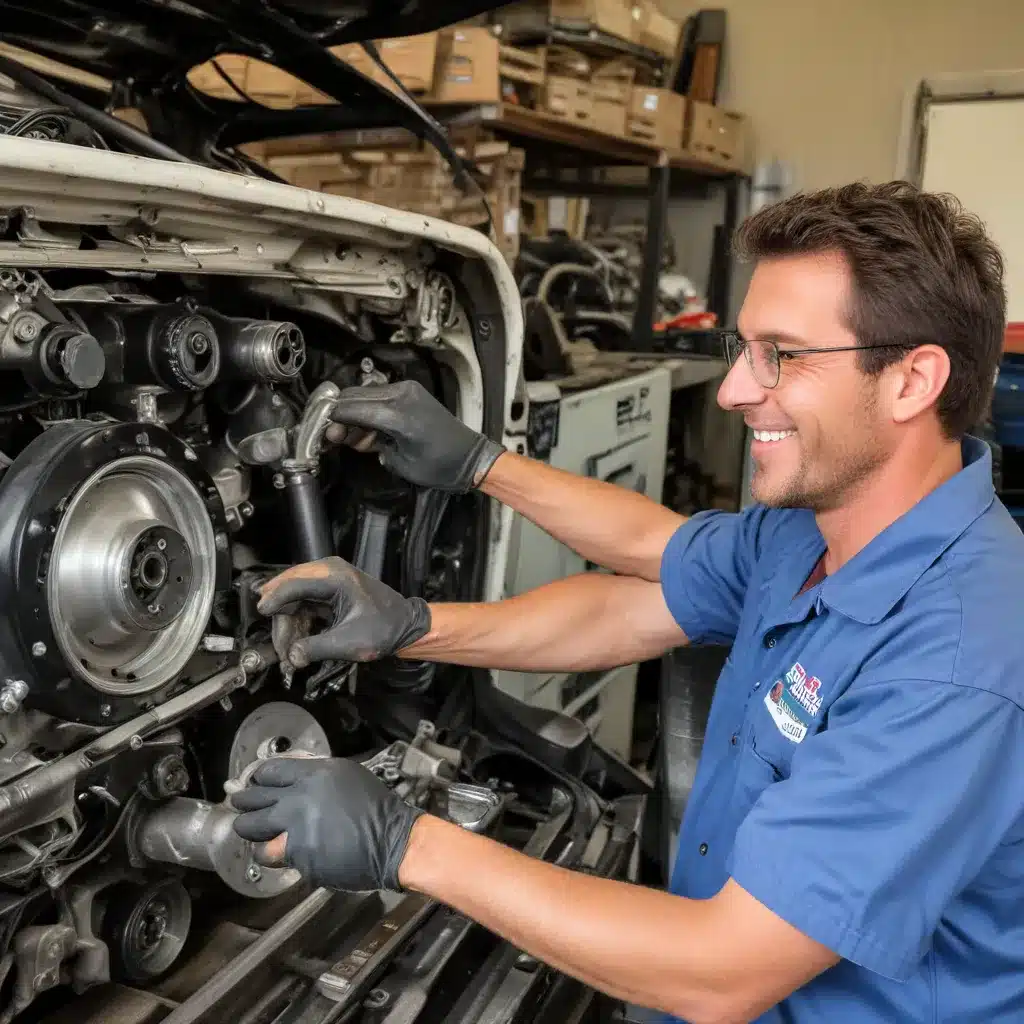
Embracing Eco-Friendly Practices for Home Appliance Repair
As the city of Santa Barbara takes bold steps towards achieving carbon neutrality by 2035, homeowners and property managers must also play their part in reducing waste and emissions. One crucial aspect of this effort is the way we approach home appliance repair and maintenance. By adopting innovative, eco-friendly techniques, we can not only extend the lifespan of our appliances but also contribute to the city’s broader sustainability goals.
The City of Santa Barbara’s new Climate Action Plan, “Together to Zero,” outlines a comprehensive strategy to reduce greenhouse gas emissions across all sectors, including the residential and commercial building sectors. A significant portion of these emissions originates from the energy consumed by home appliances, particularly those relying on natural gas. By transitioning to more efficient, all-electric appliances and implementing sustainable repair practices, homeowners can help the city reach its ambitious climate targets.
Navigating Local Regulations and Compliance
In Santa Barbara, homeowners and property managers must adhere to a set of local regulations and guidelines when it comes to home appliance repair and maintenance. The city’s Green Building Policy, for instance, mandates that all new city facilities be designed as highly efficient, zero-net-energy buildings, capable of producing enough on-site electricity to power the building’s operations.
Furthermore, the city has set a goal to convert all its existing facilities to all-electric by 2035. This transition away from natural gas-powered appliances is crucial, as the Climate Action Plan aims to reduce natural gas consumption through the electrification of the city’s building stock. Homeowners and property managers can align their repair and replacement practices with these local regulations to ensure compliance and contribute to the city’s sustainability efforts.
Extending Appliance Lifespan through Eco-Friendly Repair Techniques
One of the most effective ways to reduce waste and emissions associated with home appliances is to extend their lifespan through proper maintenance and targeted repairs. By adopting eco-friendly repair techniques, homeowners and property managers can not only save money on replacement costs but also minimize the environmental impact of their appliances.
Refrigerator Repair: Refrigerators are often one of the most energy-intensive appliances in a home. When repairing a refrigerator, technicians should prioritize techniques that improve energy efficiency, such as:
– Replacing worn-out door seals to prevent cool air from escaping
– Cleaning condenser coils to ensure optimal heat transfer and compressor performance
– Upgrading to a more energy-efficient compressor or refrigerant, if necessary
Washing Machine Repair: Washing machines account for a significant portion of a household’s water and energy consumption. Eco-friendly repair techniques for washing machines include:
– Replacing worn-out suspension rods or belts to improve efficiency and reduce vibration
– Upgrading to a high-efficiency (HE) washing machine motor, which can save up to 25% on energy and water usage
– Ensuring proper calibration of water levels and wash cycles to minimize water waste
Oven and Stove Repair: The repair of ovens and stoves should focus on improving energy efficiency and reducing gas consumption. Techniques may include:
– Replacing worn-out door gaskets to prevent heat loss
– Upgrading to a more energy-efficient ignition system, such as an electronic ignition, to reduce natural gas usage
– Adjusting burner settings to optimize flame patterns and minimize energy waste
Cost Considerations and Eco-Friendly Alternatives
When it comes to home appliance repair, cost is often a significant factor for homeowners and property managers. However, by considering the long-term savings and environmental benefits, investing in eco-friendly repair techniques can be a wise decision.
According to local repair service providers in Santa Barbara, the average cost for a refrigerator repair ranges from $150 to $400, depending on the specific issue and the necessary parts. For washing machine repairs, the typical cost ranges from $100 to $300, while oven and stove repairs can cost between $150 and $400.
In many cases, eco-friendly repair techniques may cost slightly more upfront, but they can lead to significant savings in energy and water bills over time. Additionally, these techniques help extend the lifespan of the appliance, delaying the need for costly replacements.
To further support sustainable practices, the city of Santa Barbara has partnered with local libraries to promote a “Library of Things,” which allows residents to borrow a wide range of household items, including tools and small appliances, reducing the need for individual ownership and waste.
Embracing Circular Economy Principles
Beyond repair techniques, the city of Santa Barbara is also exploring ways to promote a circular economy approach to home appliances and other household goods. This model emphasizes the reuse, refurbishment, and recycling of products, rather than the traditional linear “take-make-waste” approach.
One initiative in the city is the expansion of repair cafes, where skilled volunteers help residents fix their broken appliances, electronics, and other household items. These events not only extend the lifespan of products but also foster a sense of community and skill-sharing.
Additionally, the city’s ban on certain single-use plastic items, such as polystyrene and plastic straws, demonstrates its commitment to reducing waste and promoting sustainable alternatives. Homeowners and property managers can further contribute to these efforts by choosing eco-friendly appliance models, opting for refurbished or remanufactured products, and properly disposing of old or irreparable appliances through the city’s recycling programs.
Collaboration for a Sustainable Future
Achieving the city’s ambitious goal of carbon neutrality by 2035 will require a collaborative effort from all members of the community, including homeowners, property managers, and local businesses. By embracing eco-friendly repair techniques, investing in energy-efficient appliances, and supporting circular economy initiatives, we can collectively reduce waste, lower emissions, and contribute to a more sustainable future for Santa Barbara.
The team at SB Superior Repair, a local home appliance repair service, is committed to providing homeowners and property managers with the knowledge and tools needed to make informed decisions about their appliance repair and maintenance. By working closely with the city’s sustainability initiatives, they can help residents navigate the local regulations, access cost-effective eco-friendly solutions, and play a vital role in the community’s transition to a carbon-neutral future.

